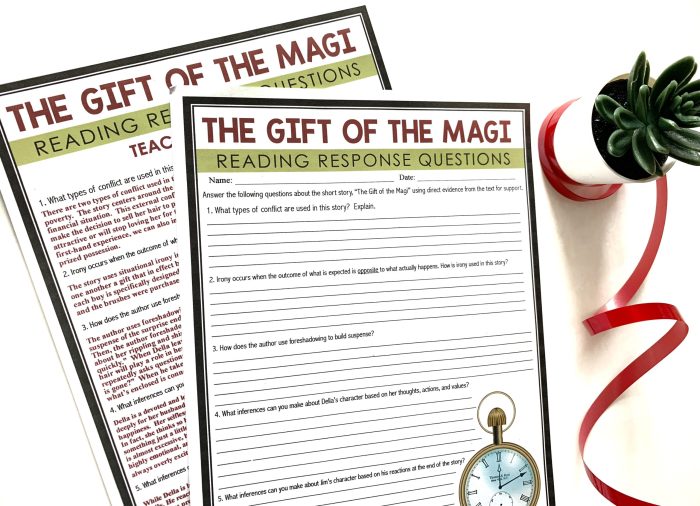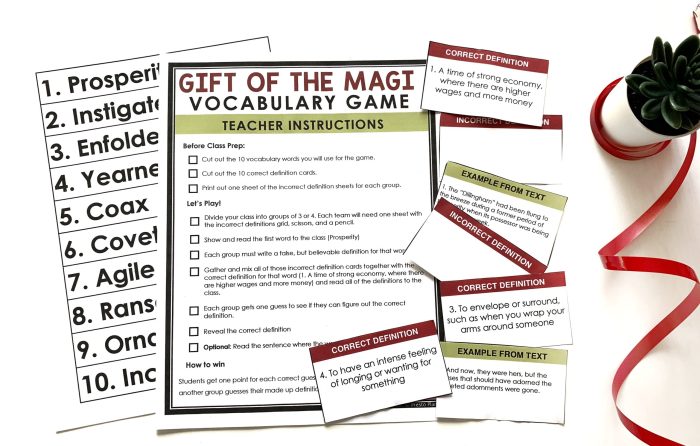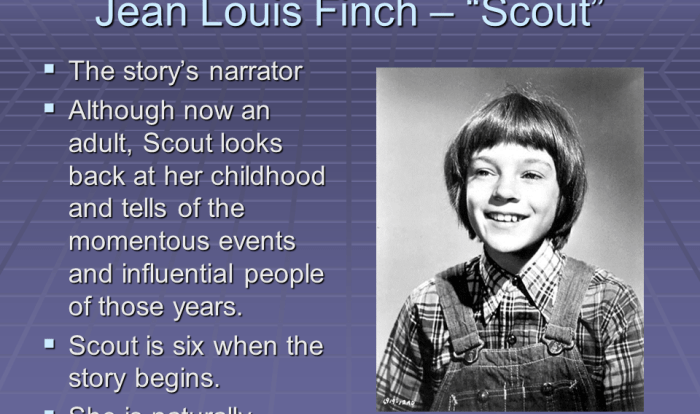The Gift of the Magi Vocabulary PDF unveils the intricate literary tapestry of O. Henry’s classic short story, providing a comprehensive guide to the rich vocabulary that enhances its poignant narrative. This resource empowers readers to delve into the story’s profound themes, nuanced characters, and exquisite use of literary devices.
Through detailed analysis and insightful definitions, this PDF illuminates the vocabulary that brings the story to life, revealing the author’s mastery of language and his ability to evoke vivid imagery and convey complex emotions.
Vocabulary Analysis

Vocabulary plays a pivotal role in comprehending O. Henry’s “The Gift of the Magi.” It enables readers to grasp the characters’ motivations, appreciate the narrative’s irony, and delve into the story’s deeper themes.
Key Vocabulary Words
The following key vocabulary words are essential for understanding the story:
- Magi: The wise men who visited the infant Jesus, bearing gifts of gold, frankincense, and myrrh.
- Epiphany: A sudden realization or insight, often of a religious or spiritual nature.
- Sacrifice: The act of giving up something valued for the benefit of another.
- Irony: A situation in which the actual result is opposite to what was expected or intended.
- Foil: A character who contrasts with another character, highlighting their differences and enhancing their qualities.
Author’s Use of Vocabulary, The gift of the magi vocabulary pdf
O. Henry’s use of vocabulary is deliberate and skillful. The words he chooses create a rich and nuanced narrative, enhancing the story’s emotional impact and conveying its themes.
For example, the use of the word “epiphany” to describe Della’s realization of her love for Jim highlights the profound nature of her sacrifice. Similarly, the irony inherent in the gifts the couple exchange underscores the bittersweet nature of their situation.
The characters of Della and Jim serve as foils, their contrasting personalities and sacrifices illuminating the story’s themes of love, sacrifice, and the importance of human connection.
Theme Exploration
The Gift of the Magi is a classic short story that explores the themes of love, sacrifice, and the true meaning of Christmas. These themes are developed through the use of symbolism, imagery, and the story’s setting and historical context.
Symbolism and Imagery
The story is rich in symbolism and imagery that conveys its themes. For example, the magi’s gifts of gold, frankincense, and myrrh symbolize the gifts of love, sacrifice, and devotion. The star of Bethlehem symbolizes hope and guidance, while the manger symbolizes humility and simplicity.
Setting and Historical Context
The story’s setting and historical context also contribute to its thematic significance. The story is set in Bethlehem during the time of Jesus’ birth, a time of great poverty and oppression. This setting helps to emphasize the sacrifices that Della and Jim make for each other and the true meaning of Christmas.
Literary Devices

The Gift of the Magi employs a range of literary devices to enhance its narrative impact and convey deeper meanings. These devices include foreshadowing, irony, and symbolism, each contributing to the story’s richness and complexity.
Foreshadowing
Foreshadowing is a technique that hints at future events or outcomes, creating suspense and anticipation. In The Gift of the Magi, several instances of foreshadowing prepare the reader for the story’s poignant conclusion.
- Early in the story, the narrator describes the Youngs’ meager apartment, suggesting their financial struggles and the challenges they face.
- The mention of the “queenly” combs that Della desires foreshadows the sacrifice she will make to buy a gift for Jim.
- The image of the Magi, wise men who brought gifts to the infant Jesus, hints at the theme of sacrifice and the importance of giving.
Social Commentary: The Gift Of The Magi Vocabulary Pdf

O. Henry’s “The Gift of the Magi” provides a poignant commentary on the social and economic conditions of its time. Through the experiences of Della and Jim, the story explores the struggles of the working class in the face of poverty and consumerism.
The Plight of the Working Class
Della and Jim are representative of the many working-class families who lived in poverty during the early 20th century. Their meager income forces them to make difficult choices between necessities and luxuries. The story highlights the harsh reality of living paycheck to paycheck, where even the smallest luxuries are out of reach.
The Illusion of Consumerism
The story also critiques the pervasive consumerism of the time. Della and Jim’s desperate attempts to find the perfect gifts for each other reveal the societal pressure to conform to materialistic ideals. However, the irony of their situation is that their sacrifices ultimately result in gifts that are rendered useless.
The Author’s Purpose
O. Henry’s purpose in using the story to comment on society is to expose the hypocrisy and inequality that existed during his time. He shows that despite the illusion of prosperity, many people were living in poverty and struggling to make ends meet.
Through the characters of Della and Jim, he challenges the societal norms that perpetuate these conditions.
User Queries
What is the significance of vocabulary in understanding The Gift of the Magi?
The vocabulary in The Gift of the Magi is crucial for understanding the story’s nuances, character motivations, and underlying themes. It allows readers to fully appreciate the author’s craftsmanship and the richness of the narrative.
How does the author’s use of vocabulary enhance the story’s narrative?
O. Henry’s masterful use of vocabulary adds depth and complexity to the story. It creates vivid imagery, evokes emotions, and conveys the characters’ inner thoughts and feelings, enhancing the overall impact of the narrative.
What are some key vocabulary words and their definitions in The Gift of the Magi?
Key vocabulary words include “abnegation” (self-denial), “consternation” (dismay), and “epiphany” (sudden realization). These words contribute to the story’s exploration of themes such as sacrifice, love, and the true meaning of gift-giving.
